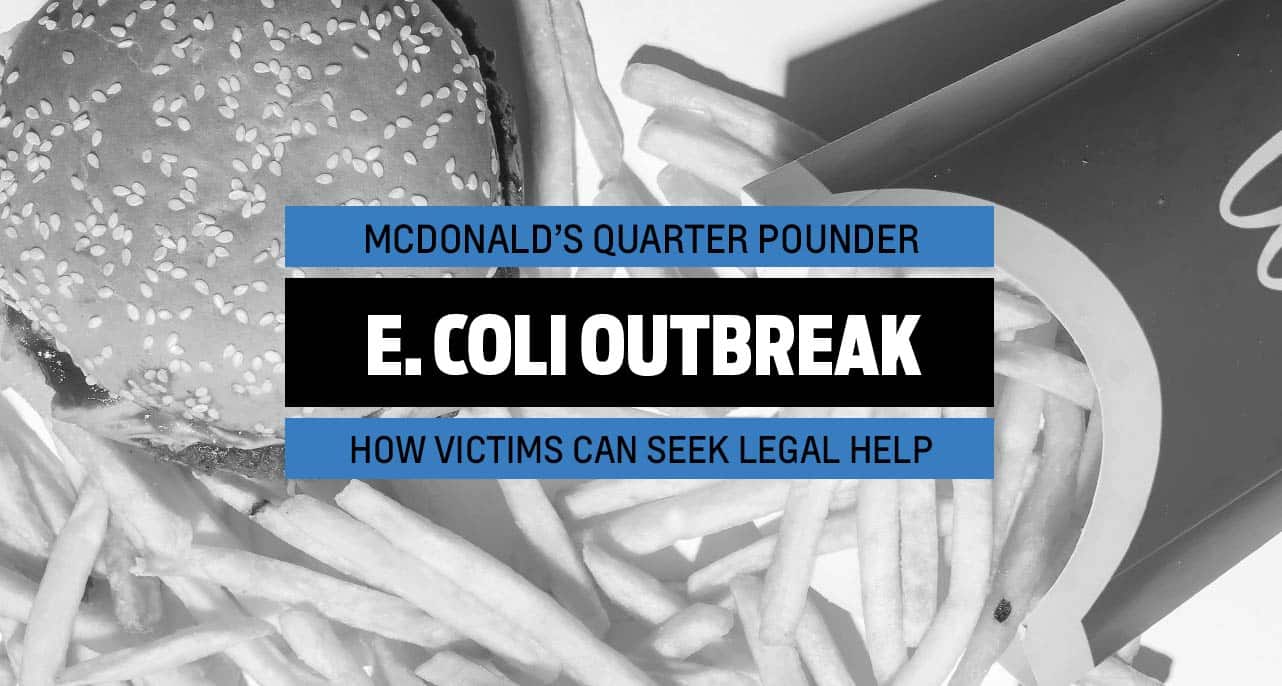
The recent E. coli outbreak linked to McDonald’s Quarter Pounders has raised serious concerns across several U.S. states. According to reports from the Centers for Disease Control and Prevention (CDC), dozens of individuals have fallen ill, and tragically, one person has died. E. coli infections can lead to severe health complications, including hemolytic uremic syndrome (HUS), a condition that affects the kidneys and can be life-threatening.
If you or a loved one has been affected by this outbreak, you may be entitled to compensation for your medical expenses, lost wages, and pain and suffering. Here’s a comprehensive guide on what the law firm O’Connor & Partners can do to help victims of this outbreak.
Understanding E. coli and Its Dangers
Escherichia coli (E. coli) is a bacteria that normally lives in the intestines of humans and animals. While most strains are harmless, certain strains, such as E. coli O157
, can cause severe foodborne illness. Symptoms of an E. coli infection include:
- Abdominal pain and cramps
- Severe diarrhea (often bloody)
- Vomiting
- Fever
- Kidney failure in severe cases, especially with HUS
The recent outbreak associated with McDonald’s has left many people with significant health problems, and in some cases, individuals have required hospitalization.
Your Legal Rights After a Foodborne Illness
If you have contracted E. coli from eating a contaminated McDonald’s Quarter Pounder, you have the legal right to pursue compensation for your injuries. Food companies and restaurants have a legal obligation to ensure that the food they serve is safe for consumption. When negligence occurs—such as improper handling, storage, or cooking of food—victims have the right to hold these entities accountable.
At O’Connor & Partners, we specialize in handling cases involving foodborne illnesses, including E. coli outbreaks. Here’s how we can assist you:
1. Investigating the Source of Contamination
Proving that a specific food product, like a McDonald’s Quarter Pounder, caused your illness requires a thorough investigation. Our legal team will work closely with public health officials and examine the findings from the CDC to establish a clear link between your illness and the contaminated food.
We will:
- Obtain your medical records and health department reports
- Investigate the supply chain of the contaminated food
- Collaborate with experts to determine the cause of the outbreak
- Identify any potential negligence in food handling and safety protocols
2. Establishing Liability
For a successful claim, it’s essential to determine who is responsible for the outbreak. Potential liable parties could include:
- McDonald’s Corporate and Franchisees: Restaurants have a duty to follow food safety standards. Any failure in proper food handling or storage could make them liable.
- Food Suppliers: If the contamination originated from a supplier, such as the provider of the beef used in the Quarter Pounders, they may also be held responsible.
- Distributors and Processors: The contamination could have occurred at any point in the supply chain, making these entities potential defendants.
At O’Connor & Partners, we will diligently pursue all avenues of liability to ensure that those responsible for the contamination are held accountable.
3. Seeking Compensation for Your Losses
Victims of foodborne illnesses like E. coli are often left with extensive medical bills, lost wages, and emotional distress. In severe cases, complications such as HUS can result in long-term health problems or even death.
As your legal team, we will fight to secure compensation for:
- Medical Expenses: Including hospitalization, medication, doctor visits, and ongoing care.
- Lost Wages: If you had to miss work due to your illness or recovery.
- Pain and Suffering: For the physical and emotional toll that the illness has taken on you and your family.
- Wrongful Death Claims: If a loved one has died as a result of the outbreak, we can help you pursue a wrongful death claim to recover compensation for funeral costs, loss of companionship, and other damages.
4. Filing a Class Action or Individual Lawsuit
In cases like the McDonald’s E. coli outbreak, victims may have the option to join a class action lawsuit or file an individual lawsuit. A class action lawsuit allows multiple victims to file a claim together against the responsible party, while an individual lawsuit is filed on behalf of a single plaintiff.
At O’Connor & Partners, we can guide you through either option, depending on your circumstances:
- Class Action: If you prefer to join forces with others who have been affected, a class action lawsuit can be more efficient and cost-effective.
- Individual Lawsuit: For those who have suffered severe injuries or unique damages, filing an individual lawsuit may lead to higher compensation.
5. Navigating Settlement Negotiations and Litigation
Many foodborne illness cases are settled out of court, but if a fair settlement cannot be reached, we are fully prepared to take your case to trial. Our attorneys are skilled negotiators and trial lawyers, and we will advocate for your rights every step of the way.
Why Choose O’Connor & Partners?
Dealing with the aftermath of a severe E. coli infection can be physically and emotionally draining. Let our experienced legal team handle the complexities of your case so you can focus on your recovery.
At O’Connor & Partners, we provide:
- Personalized attention to every client
- Thorough investigations to build a strong case
- Aggressive representation in settlement negotiations and court
- Experience with foodborne illness cases, including past successes in securing compensation for victims
Get the Help You Deserve
If you or a loved one has been affected by the McDonald’s Quarter Pounder E. coli outbreak, don’t wait to seek legal help. Time is of the essence in personal injury cases, and the sooner you take action, the stronger your case will be.
Contact O’Connor & Partners today for a free consultation and let us help you get the compensation and justice you deserve.
